
Hepatitis B genotyping/viral load/drug resistance
About Hepatitis B genotyping
Hepatitis B is a serious infection that affects the liver. It is caused by the HBV virus. It is usually a short-term acute infection that lasts less than 6 months in most people. However, a few people may develop a chronic hepatitis B infection, which can lead to liver failure, liver cancer, and in some cases, cirrhosis (permanent scars on the liver).
The hepatitis B genotyping and viral drug resistance test is used for detecting mutations in the Hepatitis B virus. These mutations may result in resistance to antiviral drugs such as telbivudine, lamivudine, entecavir, adefovir, and tenofovir.
Causes of HBV infection
The HBV infection is caused due to various reasons. Some of these include:
- Unprotected sex
- Sharing of needles
- Hereditary (from mother to child)
Symptoms of HBV infection
Common symptoms of hepatitis B infection include:

Abdominal pain
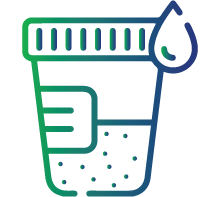
Dark coloured urine

Loss of appetite
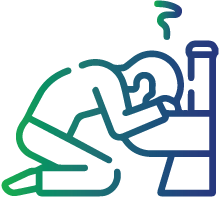
Nausea and vomiting
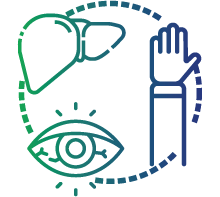
Jaundice (mostly yellowing of skin and white of the eye)

Fatigue

Fever
Who should get tested for HBV genotyping and viral drug resistance?
Individuals at higher risk are usually recommended this test, this includes:

People who have been diagnosed with HBV infection
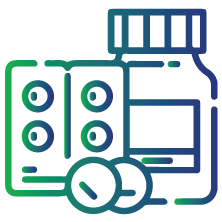
People who have been diagnosed with and treated for HBV infection for three to six months
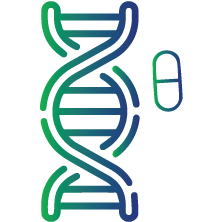
People who have been diagnosed with HBV infection and have developed resistance to their antiviral therapy

Routine monitoring of HBV infected persons
Test preparation
No special preparation is required for HBV genotyping and viral drug resistance test.
Interpretation of results
Positive test results
Positive test results for HBV genotyping and Viral drug resistance tests indicate that the hepatitis virus is multiplying inside the individual’s body and that the individual is contagious.
Negative test results
Negative test results indicate that there is no sign of HBV infection in an individual’s body.
However, the results are also given as negative if:
- HBV load is <5000 copies per mL and,
- Presence of HBV sequence divergence that prevents its amplification
FAQs
What is the turnaround time (TAT) for HBV genotyping and viral drug resistance test?
It may take about 7-10 working days to get the results of HBV genotyping and viral drug resistance test.
Are there any potential risks to HBV genotyping and viral load drug resistance test?
There are no known risks associated with HBV genotyping and viral load drug resistance testing. However, you may experience minor pain at the site of sample withdrawal, which should subside in a few minutes to hours.
What is meant by HBV viral drug resistance?
HBV viral drug resistance refers to adaptive mutations within the HBV genome that decrease the virus's susceptibility to the inhibitory effects of antiviral drugs, which means the virus has developed resistance to the given treatment for an individual.
What are the limitations of HBV genotyping and viral drug resistance test?
The HBV genotyping and viral drug resistance test has the following limitations,
- This test does not detect hepatitis B infection, if the viral load count is <500 IU/mL
- The presence of HBV sequence divergence, which prevents amplification (multiplication of virus).
How can I reduce my risk of hepatitis B infection?
Vaccination is the most effective way to avoid hepatitis B infection. It takes about six months to fully immunise against HBV (three doses of vaccines). You can also reduce the risk by:
- Having protected sex
- Not sharing personal items
- Avoiding places where hepatitis is common
- Taking treatment as a preventative measure
Related tests
Complete Blood Count (CBC)
₹ 250-
Includes
1 Test Parameter(s)
-
Complete blood count (CBC) is a type of blood test that helps determine an individual's overall health. This test evaluates red blood cells that carry oxygen from the lungs to the rest of the body and white blood cells , which fight infections and other diseases. There are five major types of white blood cells, and the CBC test measures the total number of white cells in the blood.CBC test includes an absolute and differential count of basophil, eosinophil, lymphocyte, monocyte, and neutrophil that measures the levels of these cells in the blood. CBC also measures the levels of platelets, which help prevent and stop bleeding. Hemoglobin is a protein in red blood cells, and the Mean corpuscular hemoglobin (MCH) test measures the average amount of hemoglobin in each red blood cell, mean corpuscular hemoglobin concentration (MCHC) test determines the average concentration of hemoglobin in a single red blood cell (RBC). Hematocrit/ Packed Cell Volume (PCV) measures the proportion of red blood cells, and red cell distribution width (RDW) evaluates the differences in the volume and size of your red blood cells. Mean corpuscular volume (MCV) measures the average size of the red blood cells. Complete blood counts can help detect various disorders, including infections, anemia, and diseases affecting blood components.
Liver Function Test Gold (LFT Gold)
₹ 700-
Includes
1 Test Parameter(s)
-
LFT or liver function tests are a group of blood tests done to check the functioning of the liver. LFT blood tests determine the levels of certain enzymes and proteins in the blood. These tests are useful in screening for liver infections like hepatitis and conditions like Jaundice and liver cirrhosis. Liver profile tests are also helpful in monitoring the progress of liver diseases and treatment effects.
HIV 1 & 2 Antibodies, Rapid
₹ 400-
Includes
1 Test Parameter(s)
-
Human Immunodeficiency Virus (HIV-1 and HIV-2) antibodies tests look for HIV infection in your blood. This virus causes Acquired Immuno Deficiency Syndrome (AIDS). A doctor may suggest HIV 1 & 2 tests in cases of having unprotected sex with multiple partners, during pregnancy/or before delivery or surgery. HIV infection can occur after sharing needles, illicit injected drug use, or direct bloodstream contact with an infected person's blood. HIV 1 and 2 antibody tests are to be used as screening tests only.
H3 Viral marker profile HIV, HbsAg,HCV
₹ 1,800-
Includes
1 Test Parameter(s)
-
The Triplex HIV, HBsAg, and HCV are a combination of rapid tests that help assess HIV, Hepatitis B, and Hepatitis C infectious diseases. The H3 viral marker profile test is a qualitative flow immunoassay test for the simultaneous detection of HIV and HCV-specific IgG IgM antibodies and monoclonal antibodies for HBsAg in blood, serum, or plasma. A doctor may prescribe H3 Viral Marker profile if one shows signs of chronic hepatitis, which might indicate hepatitis C infection. This test is also a part of routine tests done before undergoing surgery or during pregnancy.

